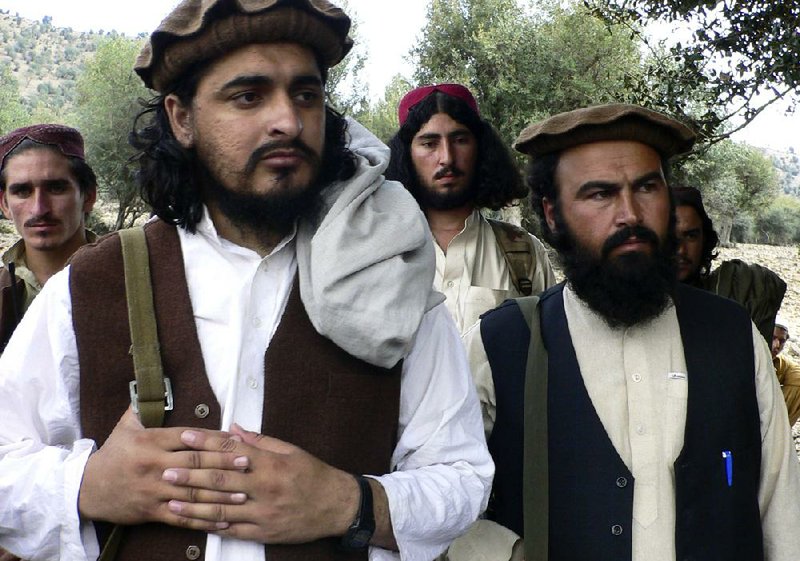PESHAWAR, Pakistan — Pakistan’s leading militants have called on fighters to honor an agreement not to attack the Pakistani military in the most important sanctuary for the Taliban and al-Qaida along the Afghan border.
Militants have long used the North Waziristan tribal area as a base to strike U.S.-led forces in neighboring Afghanistan. American officials have accused Pakistan of supporting some militants in the area, especially the feared Haqqani network - allegations Islamabad denies.
The operational chief of the Haqqani network, Sirajuddin Haqqani, is part of the five member leadership council that distributed a pamphlet Saturday ordering militants not to stage rocket or bomb attacks in North Waziristan.
“In North Waziristan, we are all in agreement with the Pakistani government, so we are all bound to honor this agreement and nobody is allowed to violate it,” the pamphlet said. A copy of the document was obtained by The Associated Press on Sunday.
Anyone who violates the agreement “will be dealt with as a culprit,” it said.
The military did not immediately respond to a request for comment.
The military has targeted militant bases in other tribal areas along the border, and the pamphlet appeared to be an attempt by the militants to preserve North Waziristan as a sanctuary from such an offensive. There have been several rocket and bomb attacks against the military in North Waziristan since the council was formed in early January.
Haqqani is the only Afghan militant on the council. The others are from Pakistan, including the most senior members of the Pakistani Taliban, Hakimullah Mehsud and Waliur Rehman, and two other prominent commanders, Hafiz Gul Bahadur and Maulvi Nazir.
Pakistani authorities on Sunday accused Afghan forces of crossing into southwestern Baluchistan province and assassinating two men allegedly providing safe haven to militants fighting in Afghanistan.
The border in the area is not clearly marked, and locals regularly travel between the countries.
The Afghans entered Pakistani territory on Feb. 9 and abducted the two men, said the top administrative official in Baluchistan. Local residents reported that the Afghans took the two across the border and then killed them, he said.
Mohammed Azim, tribal police chief in Qila Saifullah district, where Thukha is located, said the Afghans drove nearly two miles inside Pakistani territory. He initially reported the incident happened Saturday and the Afghans took three men.
A Pakistani government official has gone to Afghanistan with tribal elders to retrieve the bodies, said Bazai, the administrative official.
Meanwhile, gunmen burst into a family home of a provincial judge in eastern Afghanistan, killing him and his niece in the latest assassination of an Afghan government official, authorities said Sunday.
Mohammad Nasir, the head of the appeals court for Kunar province, was visiting family in neighboring Nangarhar province Saturday night when gunmen stormed into his sister-in-law’s house and opened fire, said Mohammad Asan, the administrator of Khogyani district in Nangarhar. Nasir and his 8-year-old niece were both killed, Asan said. Nasir’s wife and five more children were wounded.
Separately, the Afghan Health Ministry said that the director of a medical clinic in Helmand province was found dead after being kidnapped a week ago by unknown gunmen. The Health Ministry did not provide further details.
In another part of Helmand province, a roadside bomb killed three civilians in Washir district, the provincial government said in a statement.
Also today, Pakistan’s Supreme Court charged the Prime Minister Yousuf Raza Gilani with contempt for defying its orders to reopen a corruption case against his political ally, President Asif Ali Zardari.
If found guilty, Gilani could be imprisoned and lose his job.
Information for this article was contributed from Quetta, Pakistan, by Abdul Sattar, and from Kabul by Rahim Faiez and Heidi Vogt of The Associated Press.
Front Section, Pages 2 on 02/13/2012
